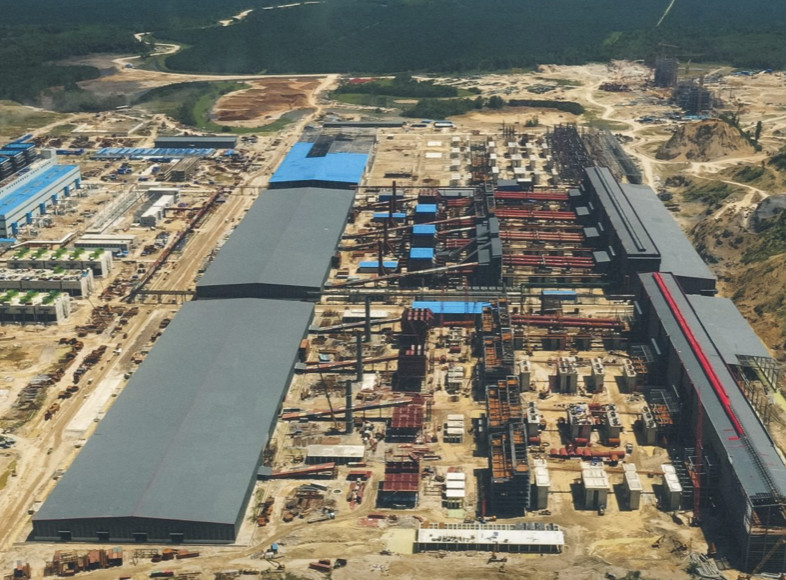Popular Reads
Top Results
Can't find what you're looking for?
View all search resultsPopular Reads
Top Results
Can't find what you're looking for?
View all search resultsNickel: Overplaying our hand?
To get more value out of the commodity, Indonesia needs comprehensive supply chains that reach deep into the stainless steel and electronic industries, and of course into the much-touted production of batteries and electric vehicles (EVs).
Change text size
Gift Premium Articles
to Anyone
M
any may be surprised to hear that Indonesia, the world’s largest nickel producer, is also importing the commodity. Incoming shipments of nickel ore amounted to almost 54,000 tonnes in the first half of 2023, up from 22,500 tonnes in 2022, according to Statistics Indonesia (BPS).
For companies that process nickel in Indonesia, there can be many reasons to import the metal rather than source it domestically. Almost all imports this year have come from the Philippines, the world’s second-largest producer.
A key factor behind the increased imports is the massive expansion of the country’s smelting capacity in the past few years as the government forced mining companies to invest heavily in the domestic processing of the raw material.
The preoccupation with downstream development has deflected the government’s attention from the upstream side of the business.
Indonesia's shift from nickel ore exporter to importer marks the success of a government plan to move up the commodities value chain. It is nevertheless important to maintain a balance of domestic supply and demand because the downstream industries need assurances of supply security, and in the current geopolitical context, self-sufficiency in critical minerals is the name of the game.
Indonesia boasts nickel reserves of around 21 million tonnes, on par with Australia’s, according to United States Geological Survey data. Annual production is around 1.6 million tonnes, however, meaning that reserves could run out relatively soon.
Exploration for new reserves must speed up to keep pace with mining activities.
Most mining companies would be happy to focus only on nickel exploration and production while leaving the processing to others. Mining is, after all, their bread and butter.
However, the miners have been compelled to spend much of their time, effort and funds on smelters and other processing facilities, and analysts have told The Jakarta Post that mining companies, and the banks financing them, require a more favorable business environment to increase nickel exploration.
To attract funding, exploration and production projects must adhere to global environmental standards, including the requirements for mine closure. Smaller firms, and of course the many unlicensed mining operations, frequently fail to meet these standards, but NGOs and the media appear fixated on large multinational corporations.
Today, any impression that Indonesian nickel comes at an unreasonably high environmental cost could hurt demand for both upstream and downstream products and inhibit investment. The expansion of exploration and production, therefore, must be cautious and controlled.
Meanwhile, the development of downstream industries must continue at full force. The smelting of nickel ore is only the beginning of the process. To get more value out of the commodity, Indonesia needs comprehensive supply chains that reach deep into the stainless steel and electronic industries, and of course into the much-touted production of batteries and electric vehicles (EVs).
These supply chains will not simply build themselves. Indonesia does have abundant nickel reserves, but these are just the basis for important industrial development further down the line.
It does appear that Indonesia has overplayed its hand on nickel. Government officials seize almost every congress or global conference as an opportunity to flaunt the country’s abundance of nickel, as if that alone will convince any potential investor to open their wallet.
But the natural blessing alone will not convince Tesla, BYD or any other global EV player to set up shop in Indonesia, not least because lithium presents itself as an alternative to nickel for the EV battery industry.
The government has relied heavily on the stick, mostly through export bans, to make businesses invest in refining and smelting facilities as the foundation of downstream industries. It is going to need plenty of carrots to convince them to build the remaining required facilities.











